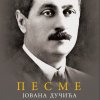Sebastian Press Publications, which bears the name of the great Orthodox Christian missionary in North America, Archimandrite Sebastian Dabovich, has enriched Christian literature in the English language during the last few years with its valuable translations of the interesting and resourceful works of Serbian and other theologians to English.
Among the authors translated into English are the works of St. Bishop Nikolaj of Zicha (Velimirovic), St. Abba Justin of Celije, Bishop Atanasije Jevtic, Bishop Danilo Krstic, Bishop Ignjatije Midic, Bishop Maxim Vasiljevic, prof. Nenad Milosevic, Fr. Vladan Perisic, Bogoljub Sijakovic, Fr. Radovan Bigovic, and there are also books of significance by Christos Yannaras, John Zizioulas, Archimandrite Emilianos of Simonopetra and Fr. Stamatis Skliris.
This publishing endeavor is of great significance, not merely because contemporary Serbian theological thought is presented to English speaking readers, but because of the fact that the English language is like the old Greek language during the time of Alexander the Great – a means for global communication, conversation, traffic between continents and nations, among people throughout the globe. The fact that many esteemed Orthodox theologians worked and wrote (and still write) in English speaks of the significance of the English language today – the modern koine language or the lingua franca. For example, Bishop Nikolaj Velimirovich, during his mission in Great Britain, wrote and published his works in English at the beginning and mid 20th century. V. Rev. Alexander Schmemann, Fr. Georges Florovsky, Fr. John Meyendorff — coryphées of Orthodox theology, initiators of the Orthodox theological awakening in the 20th century — published their most influential and most famous works in English. Metropolitan John Zizioulas, one of the greatest living theologians today, writes also in English.
With the publishing endeavor of “Sebastian Press”, Serbian theology becomes accessible in a global sense. The publisher has made an effort to literally allow this accessibility – offering books to readers also through online order, books may be purchased in the virtual bookstore on the website of the Western Diocese. Besides being available in the traditional format, books are also available electronically, on the Kindle book reader.
OUR CONVERSATION WITH BISHOP MAXIM:
How did you arrive at the idea of publishing books in English?
Very spontaneously and naturally, I felt it as some sort of obedience to the Church. While on the one hand in the Serbian community we have a flash of theological dynamism hidden in the heart of our Tradition, at the same time in the Anglophone world there is an absence of serious theological books by Serbian authors. Of course, our publications are not limited to only Serbian authors. We have published significant works by Christos Yannaras, John Zizioulas, Archimandrite Aimilianos of Simonos Petras and Fr. Stamatis Skliris, and in a few months a book by the former abbot of Iveron Monastery, Fr. Vasilios Gondikakis, will be available. With the publications of “Sebastian Press” (together with Serbica Americana) we wish to present not only to the American but to the entire Anglophone world and beyond the written works of Serbian and other Orthodox theologians. With this the “view” of boundaries and distances of space and time are abolished. We receive orders from throughout America, Canada, Australia, Europe and even Asia. At the recent meeting of the Assembly of Orthodox Bishops in America, our publications were praised by Archbishop Demetrios, and we all sang the Tropar to the Holy Emperor Constantine in English out of the translated book by Bishop Atanasije (Jevtic).
What significance do the published works in English of these esteemed Orthodox thinkers have for Serbian theology and Serbian culture?
The Church theologizes with its entire being, as well as with its written activity. The goal of this activity is so that contemporary man, reading the works of Saints Justin of Chelije and Nikolai Velimirovic, as well as our contemporary theologians-spiritual fathers Atanasije, Metropolitan John Zizioulas, Archimandrite Aimilianos of Simonos Petras and others, might be taught how to be in our all complex world. I believe that these works lead to a rapprochement with the Serbian tradition which has its specific ethos and beauty; at the same time it leads to the adoption of the “logic” of the World to come of which from which drops of comfort – already here and now – descend upon the heart of man living anywhere in the Western hemisphere. The many reactions from readers speak to us of this and it means a lot to us. The significance is multi-linked: the Anglophone world becomes familiarized with the theological thought of our theological and churchmen as well as with a theological tradition of which they have more or less heard, and now they can approach more closely. Theological measurement leads to the experience of the presence of the Resurrected One among us. Thus, that which was foreign and unknown becomes close and desirable.
What challenges have you encountered while preparing and publishing these books?
We did not encounter challenges and difficulties precisely because this was and is a collective work. We feel God’s help continuously sent to us through living persons. This work gives us rest and it offers hope.
Is the translation from one language to another potentially dangerous because in the process much of that which is important can be lost? Are there certain terminological ambiguities, and is it possible to express theological thought in the modern English language? What are the advantages and disadvantages of the English language?
I think that the English language is actually very suitable for expressing the theology of the Church. There are many indications that in North America there is a real theological flourishing that surpasses other geographic areas. Furthermore, our translators are highly capable, and in the end each book goes through a professional proofreading (Brotherhood of the Monastery of St. Herman of Alaska in Platina, California, and Sarah Anna Boyle). In essence, every human act needs to serve as a signpost that leads to the Truth. The Truth is not on the pages of the book but outside of them. The value of the written word is in a complete guide toward eternal life in Christ, in transformation toward the "abundant life" so that "no one fears death" (Saint John Chrysostom). I am convinced that the English language with this spiritual labor (podvig) of theological translations – because it is required to “coin new terms” (Saint Gregory the Theologian) – gains a new ethos of terminology, achieves gracefulness and chromaticity, and with that, of course, a spiritual richness which it did not previously possess.
What are the plans for the future and will “Sebastian Press” in 2014 delight Serbian and English audiences with new releases?
We will soon publish works by: Elder Vasileios Gontikakis, Professor Bosko Bojovic, Professor Bogdan Lubardic, Father John Erickson, Vladislav Puzovic, etc. We plan to publish the collected works of Archimandrite Sebastian Dabovich and the monumental edition of the book, The Legacy of Kosovo in English. Sebastian Press has started a bilingual edition in French and Serbian. In this regard recently at the Serbian Cultural Center in Paris we held a promotion of the book of poetry by Jovan Ducic. We have already published The Proceedings from the International Symposium on St. Maximus the Confessor (held in Belgrade in October 2012), and in December of 2013 we published the Serbian version of it. Sebastian Press will publish some titles for children and youth next year. In the longer term, I think that these publishing activities will carry out perhaps a more fruitful mission after us than at this given time. Additionally, it is planned to publish works for young people who have an insatiable thirst for the truth, but it is up to us to discover the path toward them.





